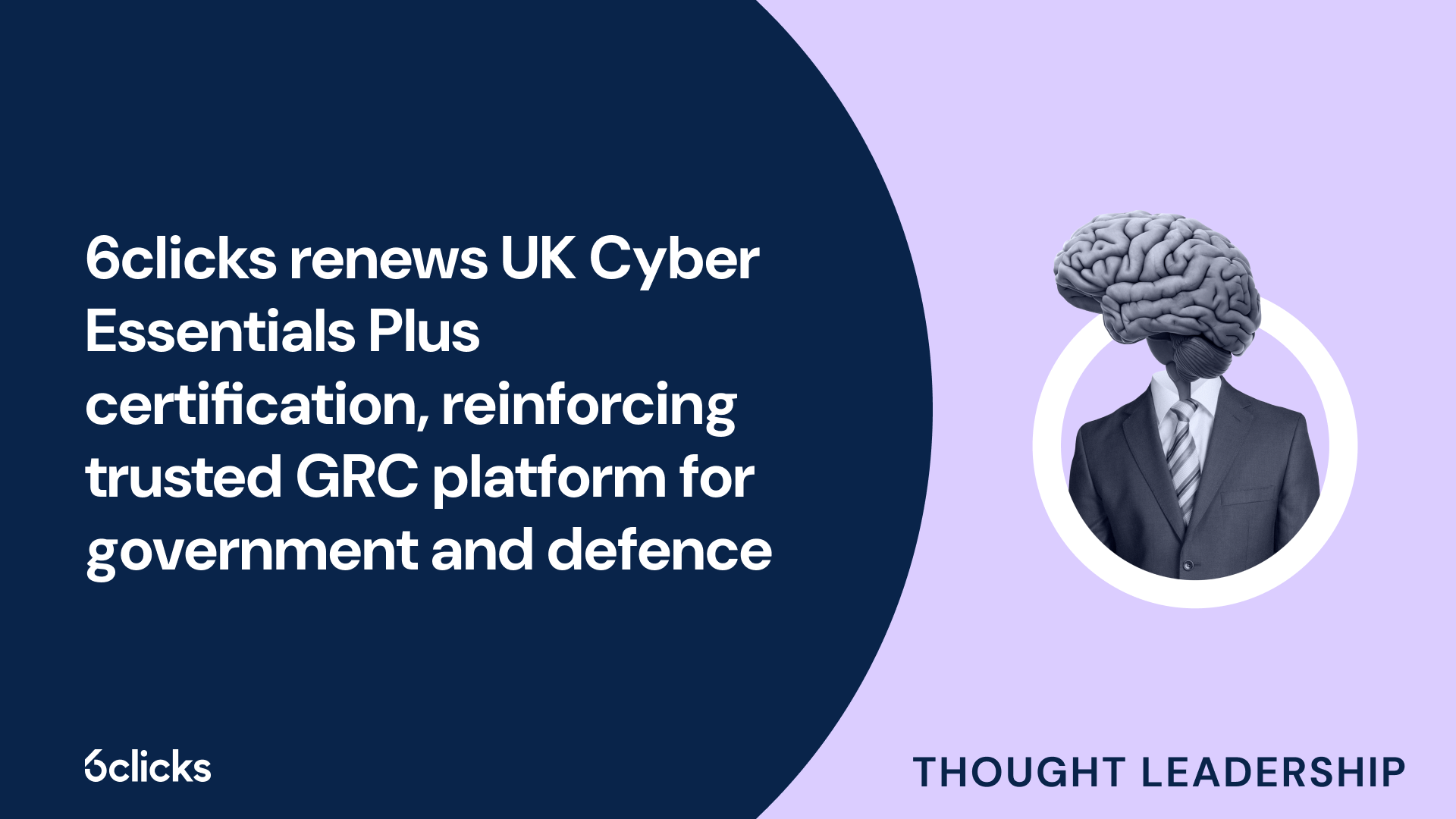The GRC buyer’s guide for 2025: Building resilience with AI-powered, federated solutions
Discover the ultimate GRC buyer's guide for 2025! Uncover how AI-powered, federated solutions transform compliance and security management for industries like government, aerospace, banking, and more. Learn about centralized control, continuous compliance, and advanced cyber GRC capabilities. Download now!
-1.png?width=200&height=249&name=Group%20193%20(1)-1.png)
The GRC buyer’s guide for 2025: Building resilience with AI-powered, federated solutions
What is APRA?
APRA (Australian Prudential Regulation Authority) is Australia’s prudential regulator responsible for supervising banks, credit unions, building societies, insurance companies, and superannuation funds. Its role is to ensure that these institutions operate safely, remain financially sound, and can meet their obligations to depositors, policyholders, and superannuation members.
APRA establishes prudential standards and regulatory requirements that regulated entities must follow to manage risks effectively, maintain adequate capital, and ensure operational resilience. These standards cover areas such as governance, risk management, information security, outsourcing, and business continuity.
By enforcing these requirements, APRA helps protect the stability of Australia’s financial system and maintain public confidence in regulated financial institutions.
What does APRA regulate?
APRA regulates financial institutions to ensure they manage risk prudently and remain financially resilient. Its supervision covers several key sectors:
Banking institutions
This includes banks, credit unions, and building societies. APRA ensures these entities maintain sufficient capital, liquidity, and risk management controls to protect depositors and maintain financial stability.
Insurance companies
APRA supervises life insurers, general insurers, and private health insurers. It ensures these organizations can meet their obligations to policyholders and manage underwriting, operational, and financial risks appropriately.
Superannuation funds
APRA regulates superannuation trustees and funds to ensure they manage members’ retirement savings responsibly, maintain proper governance, and protect member interests.
Financial holding companies
APRA also oversees parent companies and financial groups to ensure risks are managed consistently across complex organizational structures.
Who must comply with APRA requirements?
APRA requirements apply to entities regulated under Australian prudential law, including:
- Banks and authorized deposit-taking institutions (ADIs)
- Credit unions and building societies
- Life, general, and private health insurers
- Superannuation trustees and registrable superannuation entity (RSE) licensees
- Financial holding companies and regulated financial groups
These entities must comply with APRA prudential standards, regularly report risk and financial information, and demonstrate effective governance, risk management, and operational resilience.
What are APRA prudential standards?
APRA prudential standards are regulatory requirements designed to ensure financial institutions operate safely and manage risk effectively. These standards define minimum expectations for governance, financial management, and operational risk.
Key examples include:
CPS 220 – Risk Management
Requires organizations to maintain a comprehensive risk management framework covering all material risks.
CPS 234 – Information Security
Requires entities to protect sensitive information and ensure strong cybersecurity controls across internal systems and third-party providers.
CPS 230 – Operational Risk Management
Requires organizations to manage operational risk, maintain business continuity, and ensure critical services remain resilient during disruptions.
CPS 510 – Governance
Defines requirements for board oversight, accountability, and governance structures.
These standards help ensure regulated entities can identify, assess, manage, and respond to risks effectively.
Why is APRA compliance important?
Compliance with APRA requirements is essential for maintaining financial stability, protecting customers, and meeting legal obligations.
APRA compliance helps organizations:
- Demonstrate sound governance and risk management
- Protect sensitive financial and customer data
- Maintain operational resilience and business continuity
- Meet regulatory reporting and audit requirements
- Avoid regulatory penalties and enforcement actions
- Maintain trust with customers, regulators, and stakeholders
Failure to comply with APRA standards can result in regulatory intervention, financial penalties, or operational restrictions.
How does APRA supervise regulated entities?
APRA uses a risk-based supervisory approach. This includes:
- Reviewing regulatory reports and financial disclosures
- Conducting audits and compliance assessments
- Evaluating risk management frameworks and controls
- Monitoring operational resilience and information security
- Engaging directly with senior management and boards
APRA may require remediation actions if weaknesses are identified.
How can organizations meet APRA compliance requirements?
To comply with APRA standards, organizations must implement structured governance, risk, and compliance processes, including:
- Establishing formal risk management frameworks
- Maintaining policies and procedures aligned with APRA standards
- Collecting and maintaining evidence of compliance
- Monitoring risks continuously
- Managing third-party and outsourcing risks
- Maintaining clear audit trails and reporting
Many organizations use all-in-one, AI-powered GRC platforms like 6clicks to centralize compliance management, automate assessments, and maintain continuous oversight.







